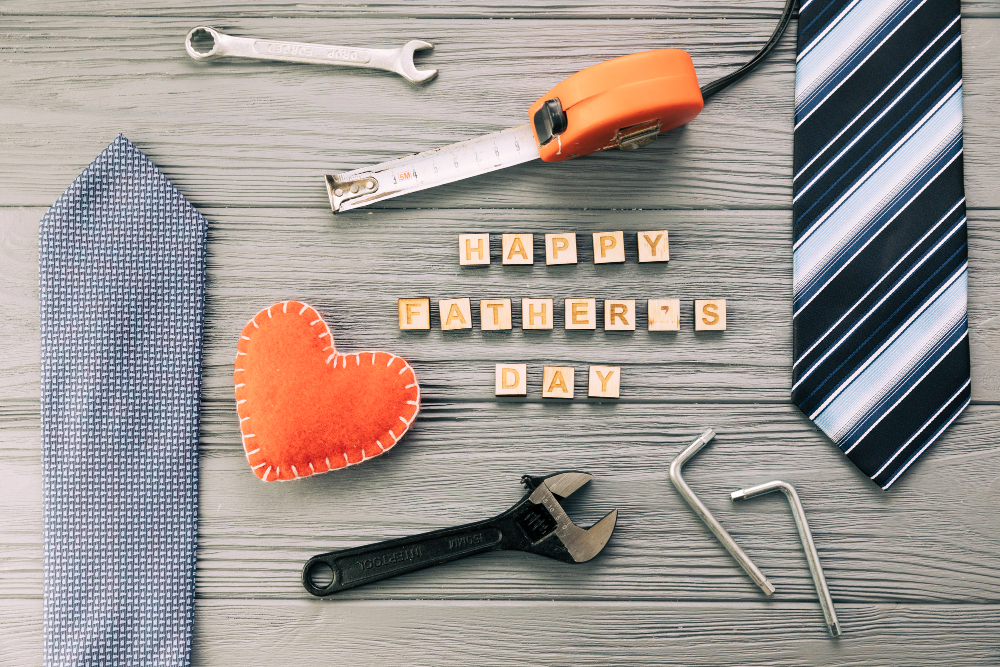Every man should have a set of reliable tools ready for whatever life throws at him — from fixing a leaky faucet to assembling furniture or making small home repairs. Having the right tools not only saves time and money but also builds confidence and self-sufficiency. Whether you’re just starting your collection or upgrading your old gear, this guide covers everything you need to build a complete and practical toolbox.
A well-rounded set of tools should include the basics for mechanical work, household maintenance, and creative projects. Let’s explore the essential tools every man should own, how to use them effectively, and why investing in quality makes all the difference.
The Importance of Having the Right Tools
Having the right tools on hand means being prepared for almost any repair or project. From fixing a door hinge to tightening a loose screw, the right tool makes the job faster, safer, and more efficient. Tools are not just about function — they represent independence and resourcefulness.
A well-equipped toolbox is an investment. While you don’t need every fancy gadget on the market, having a core collection of versatile, durable tools allows you to handle most situations confidently.
The Essential Hand Tools
Every man’s toolbox starts with a foundation of reliable hand tools. These are the go-to items for everyday maintenance and repairs.
Hammer: A sturdy claw hammer is a must-have for driving nails, removing them, and handling basic construction tasks. Choose one with a comfortable grip and balanced weight.
Screwdrivers: Invest in both flat-head and Phillips-head screwdrivers in multiple sizes. These are used for everything from tightening cabinet handles to fixing electronics.
Pliers: A pair of slip-joint pliers, needle-nose pliers, and locking pliers give you flexibility for gripping, twisting, and cutting wires or tightening bolts.
Adjustable wrench: Instead of multiple fixed wrenches, a quality adjustable wrench can handle a variety of nut and bolt sizes.
Utility knife: Perfect for cutting through boxes, drywall, and rope. Keep extra blades handy to ensure clean cuts and safety.
These basic tools form the heart of any toolkit and are often all you need for small daily repairs.
The Must-Have Measuring Tools
Precision is key when working on home projects, and measuring tools ensure accuracy.
Tape measure: A 25-foot retractable tape measure is essential for measuring furniture dimensions, room layouts, and construction cuts.
Level: A bubble level helps you hang shelves, picture frames, and mirrors evenly.
Combination square: Great for ensuring straight edges and right angles when working with wood or metal.
Accurate measurements prevent wasted materials and crooked installations, saving you both time and frustration.
Power Tools for Efficiency
While hand tools are essential, power tools add speed and power to your work. For the modern man, owning a few reliable power tools makes DIY jobs much easier.
Cordless drill: Perhaps the most versatile power tool, a cordless drill handles everything from drilling holes to driving screws. Choose one with multiple speed settings and rechargeable batteries.
Circular saw: Perfect for cutting wood, plastic, or metal. A circular saw is ideal for building furniture or completing small carpentry tasks.
Power sander: If you plan to refinish furniture or smooth rough wood, a power sander will make the job faster and more uniform.
Jigsaw: This tool is perfect for cutting curves or intricate shapes in wood and metal, making it a great addition for creative or custom projects.
When selecting power tools, always prioritize safety features and quality construction.
Automotive and Mechanical Tools
Even if you’re not a mechanic, having a few automotive tools can save you from costly trips to the shop.
Socket set: A comprehensive socket set is essential for tightening or loosening bolts on cars, bikes, and machinery.
Torque wrench: Ensures bolts are tightened to the correct tension without over-tightening.
Jumper cables: Every car owner should keep a set in their trunk for emergencies.
Tire pressure gauge: Maintaining correct tire pressure extends tire life and improves fuel efficiency.
These tools give you the confidence to perform basic maintenance and minor vehicle repairs on your own.
Tools for Home Maintenance
A home brings endless opportunities for small fixes, upgrades, and improvements. With the right tools, you can handle most maintenance tasks yourself.
Stud finder: Helps you locate wooden beams behind walls, crucial for safely hanging heavy items.
Flashlight: A bright, durable flashlight is necessary for working in dark areas like attics, basements, or under sinks.
Caulking gun: Essential for sealing cracks, windows, and bathtubs to prevent leaks.
Plunger: A basic but vital tool for handling clogged drains or toilets.
Ladder: A sturdy ladder ensures safety when changing light bulbs, painting, or cleaning gutters.
Having these home tools on hand means you can handle common problems before they become expensive repairs.
Tools for Outdoor and Yard Work
If you own a yard, garden, or driveway, outdoor tools are a must.
Shovel and rake: Perfect for landscaping, gardening, and snow removal.
Garden hose: Keeps your plants healthy and helps with outdoor cleaning tasks.
Lawn mower: For maintaining grass and keeping your outdoor space neat.
Pruning shears: Essential for trimming bushes and trees.
Toolbox for storage: Keep your outdoor tools clean, dry, and organized.
Regular maintenance of outdoor areas boosts curb appeal and keeps your property in great shape.
Safety and Maintenance Gear
No toolbox is complete without proper safety gear. Protection should always come first, especially when using power tools or handling repairs.
Safety glasses: Protect your eyes from debris or dust.
Work gloves: Shield your hands from cuts, heat, and rough materials.
Ear protection: Power tools can be loud, so earplugs or earmuffs prevent long-term hearing damage.
Dust mask or respirator: Necessary when sanding, painting, or working in dusty environments.
First aid kit: Always have one nearby in case of minor injuries or accidents.
Taking safety seriously ensures every project ends with success — not a trip to the emergency room.
Organizing Your Toolbox
A well-organized toolbox makes your work smoother and more enjoyable. Store your most-used items in an easy-to-reach compartment, and group similar tools together.
For home toolkits, a sturdy metal or plastic toolbox with a handle is ideal. If you have a larger collection, consider a rolling tool chest or pegboard setup for your garage.
Labeling drawers and compartments helps you find what you need quickly. Clean and oil your tools periodically to prevent rust and extend their lifespan.
Good organization not only saves time but also keeps your tools safe and functional for years.
Building Your Toolbox Over Time
You don’t need to buy every tool at once. Building your collection over time is a smart and cost-effective approach. Start with the essentials — hammer, screwdriver set, pliers, tape measure, and a cordless drill. As your confidence and skills grow, add more specialized tools.
Quality is more important than quantity. Investing in durable, well-made tools from reputable brands ensures longevity and reliability. Avoid cheap alternatives that break easily, as they often cost more in the long run.
A man’s toolbox grows with his experience, reflecting the projects he takes on and the skills he develops.
Conclusion
Having a complete set of tools is more than just practicality — it’s a sign of readiness, independence, and craftsmanship. Each tool you own represents a skill learned and a problem solved. From the first hammer swing to complex DIY builds, the journey of collecting and using tools builds both capability and confidence.
A well-stocked toolbox doesn’t just help you fix things; it helps you create, improve, and take control of your surroundings. Start small, invest wisely, and maintain your tools with care. Over time, you’ll have a complete collection that reflects not only your needs but also your growth as a capable and resourceful man.
FAQs
1. What are the first tools every man should buy?
Start with a hammer, screwdriver set, pliers, adjustable wrench, tape measure, and a cordless drill. These essentials cover most basic home and DIY tasks.
2. Should I buy tools individually or as a set?
If you are just starting, a high-quality tool set offers good value and convenience. As you gain experience, you can replace or upgrade individual tools as needed.
3. How can I maintain my tools properly?
Clean tools after each use, keep them dry, and store them in a toolbox or tool chest. Apply a light coat of oil to metal surfaces to prevent rust and ensure longevity.
4. Are expensive tools worth the investment?
Yes, quality tools last longer, perform better, and are safer to use. Cheap tools often break or wear out quickly, costing more in the long term.
5. What is the best way to organize my toolbox?
Group similar tools together, label compartments, and store frequently used items on top or in front. Regularly check and clean your toolbox to keep it functional and tidy.
Also read: Size 2 Rings: The Ultimate Guide to Tiny Ring Sizes and Perfect Fit




Leave a Comment